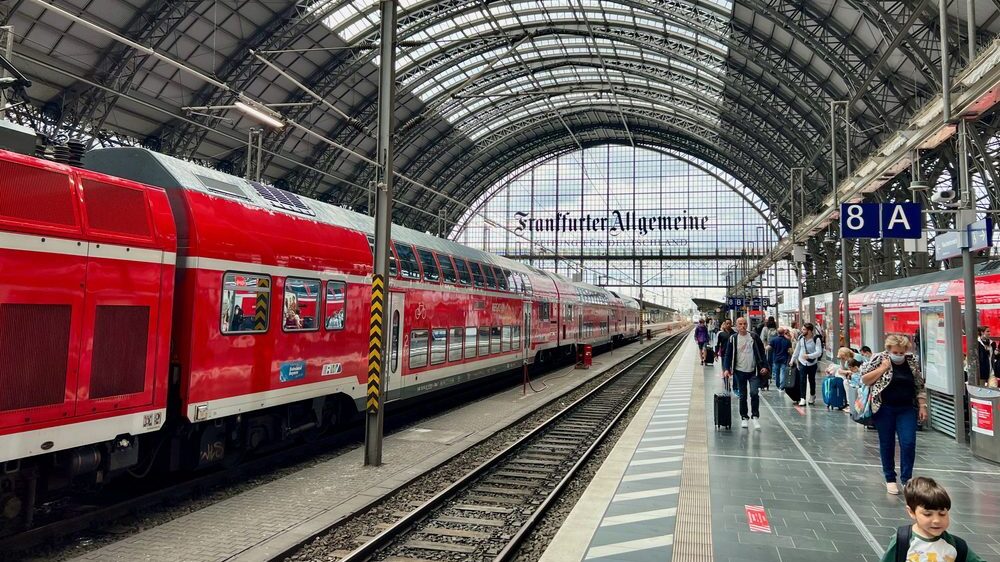
Platform at main train station Frankfurt, Germany.
Photo: Lodapon Wantaarawaiva / Shutterstock.com
Germany may be brought to a standstill on Monday, March 27th, as transport unions plan extensive strikes, saying wages have not kept up with spiralling inflation. While some claim the unions are taking inspiration from the ongoing French pensions protests, it looks like ordinary Germans have had enough and are sick of rising prices.
The announcement came as the EVG and ver.di unions—who together represent virtually all of Germany’s transport and transport-related service workers—called for a 24-hour walkout at a press conference on Thursday, March 23rd. “We represent workers who literally keep this country running and are far too badly paid for it,” said Frank Werneke, chairman of ver.di.
In response, Deutsche Bahn, Germany’s national train operator, announced that all long-distance train journeys have been cancelled for Monday, and that smaller regional train services will be greatly reduced. Walkouts are also expected from workers at shipping ports, roads, and airports. Frankfurt airport, the biggest in the country, said it was cancelling all regular flights.
This comes as Germany has recently been hard hit by high inflation levels. Since February of last year, prices have risen by an average of 8.7%.
However, the situation looks worse when looking specifically at food and household energy prices, which in the last year have risen by 21.8% and 32.2% respectively. This means that regular people, who spend a larger portion of their lower incomes on these necessities, are hit especially hard.
In the meantime, wages have not kept pace. Employers have only offered a 5% raise, and a once-off payment of €2,500, which falls far short of making up for inflation. Speaking to German TV from Potsdam, Werneke said this reflects a naive ignorance on the part of the wealthy, as “some employers really don’t seem to understand the times we live in.”
Deutsche Bahn disagreed and claimed the strike was “completely excessive, unnecessary and disproportionate,” adding that “[o]ur employees and passengers now need a quick solution, not a big strike.”
However, despite criticism, Werneke seemed defiant:
Our members will 100% follow the strike call because there is a clear support for our demands … our people are tired of being led around by the nose in these collective bargains that we have been negotiating … Now the wind is changing and there is a new self-confidence among the workers.
